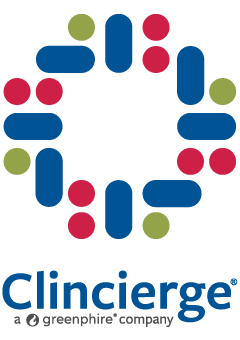Recruiting and enrolling patients is often an uphill battle for sponsors of rare and ultra-rare disease trials. The unique patient populations are located across the globe, presenting significant logistical challenges to trial sponsors and sites. The logistical and financial burdens that families face are often overwhelming. Clincierge coordinates all of the complex details related to travel and logistics for patients and their families, providing an exceptional patient experience during their cross-border journey.
Many rare diseases are more prevalent in specific geographic areas distant from qualified clinical sites. Several conditions are so rare that the number of eligible patients within any one country is fewer than five. These situations call for cross-border travel support to adequately enroll patients in clinical trials. Once cross-border travel is considered necessary, the sponsor must decide whether patients should ultimately relocate to be close to the clinical site or whether they should travel back and forth to their home country. Each patient relocation option has its advantages and is dependent on the study budget, protocol schedule of events, and patient needs.
Sponsors may choose to relocate patients and their caregiver(s) to ensure long-term retention and compliance with the protocol. Planning for patient relocation support is categorized into three phases: Start-Up, Ongoing Needs, and Repatriation.
Clincierge invests significant time and effort in the start-up phase, considering country regulations (the country of origin and the clinical site), passport and visa assistance, housing options, childcare, schooling, moving costs, and transportation options.
Clincierge works with the sponsor to create a tailored travel policy submitted to Ethics Committees and IRBs. We proactively leverage our 25+ years of experience to anticipate patient needs and provide customized travel and logistics solutions.
CRITICAL DETAILS TO CONSIDER DURING CROSS-BORDER TRAVEL PLANNING:
- How many family members will be relocated?
(many rare disease trials are pediatric and involve relocating an entire family) - Will a rental car be covered?
- Will accommodations be made for service animals?
- Will childcare expenses be covered?
- What is the weekly meal reimbursement for a family of four?

We provide additional support services to reduce the stress and discomfort of relocating, such as offering information about local ethnic grocery stores, school enrollment requirements, how to obtain a cell phone, or local support groups. We do our best to educate families so that they feel more comfortable in their new city.
We work to identify and communicate any support variances with the sponsor in advance to establish a transparent and fair travel policy.
Download the checklist below for more details to improve your cross-border travel strategy.
Once a family is in their new home, their dedicated bilingual Clincierge coordinator will be in contact often to make sure they are comfortable, have what they need, and are reimbursed for any approved costs in a timely fashion. Clincierge often acts as an intermediary or advocate, communicating patient needs and feedback to the CRO and sponsor.
Clincierge manages ongoing needs, including local ground transport, grocery reimbursement, and interpretation, if needed, while providing regular reporting back to the CRO and sponsor. If approved, we will also manage a few trips back home for the family during their long-term stay – this way, they do not miss essential holidays, and they don’t miss any protocol visits.
Repatriation
The return trip home can be just as taxing on a family as their initial relocation, and the complexity of repatriation should not be taken for granted. Sponsors need to prepare a plan for participant support when they return home. Requirements and processes are dependent upon their length of stay abroad and their unique medical situation. Families may request temporary housing while they look for a new home after their long absence. It may take some time for the medical staff to transfer care to a facility in the patient’s country of origin. Clincierge works with the patient and sponsor to develop a continued patient support services plan, such as transporting necessary medical equipment home or enrolling in an Open-Lable Extension (OLE) trial that may require IP/sample shipping services.
In conclusion, communication through each phase of the cross-border travel process is the key to successful patient support. Clincierge Coordinators develop close relationships with patients and their families to provide personalized and responsive service throughout the study. Clincierge ensures that participants, caregivers, site staff, CROs, and sponsors are informed to provide a streamlined and stress-free cross-border patient travel experience.


